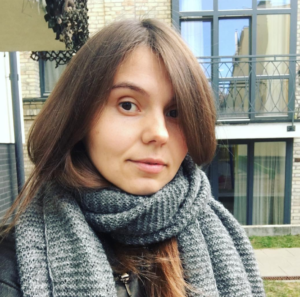
Q & A: Plácido Domingo & Ana Martinez On Competitions, Repertory Stagnation & Contemporary Works
By Polina LyapustinaOn February 14, 2019, Plácido Domingo visited Vilnius to prepare a performance alongside Ana María Martínez and Violeta Urmana, and conductor Jordi Bernàcer at Žalgiris arena.
It is not often that one gets an opportunity to introduce the icon, who needs no introduction. Fortunately, OperaWire was at the press event prior to the performance and had an opportunity to ask Domingo, and Martínez a few questions pertaining to their perceptions of the opera world at large.
OperaWire: International competitions for young singers are very challenging but represent major stepping stones toward success in this career. Besides the vocal and technical requirements, what other difficulties and obstacles do singers face, and what should they be ready for?
Plácido Domingo: The world of opera grows every day, and so does the amount of singers. All of them are coming to competitions from all around the world and this is a really hard time for them. So many talents and a huge rivalry. Competitions are a one-time chance and if you failed, you may improve yourself in two years, but we have more and more people every year, and there’s not really possible to represent yourself again.
Today singers can also use media for showing their talents. YouTube is a chance. But the competition is even higher.
It doesn’t matter how many theatres we have, they are not enough. And unfortunately you have to realize, that opera is a very small part of the world of music.
And we are flying from one continent to another to perform on different stages. Just those, who have these exceptional qualities.
OW: What is your opinion on contemporary operas? Do you enjoy performing them?
PD: I have sung and conducted different contemporary operas. Some of them were a great success. But somehow we don’t repeat them that often. It always connected to the success of the composer like Daniel Catán, who passed a few years back. For his opera, based on the film, “Il Postino,” I did a premiere and we performed it in three different theatres. Ana María [Martínez] has just come from Houston where she sang “Florencia en el Amazonas,” another work of his. His works live and will live longer than a composer. This is a sad fact, but that’s how success works.
John Adams and Philip Glass are the other composers who can write operas and be performed widely. I did Tan Dun’s “The First Emperor” at the Met. It is very interesting opera, but very difficult to sing. And we managed to perform it for two seasons at the Met.
Also, the opera based on the story of Count of Monte Cristo is in progress now. I hope we can do it in a year and a half if I’m still singing.
And I like to be involved in something new, but some operas I did were just incredibly difficult to sing because they were not melodic. I did “Don Rodrigo” by Alberto Ginastera. That was tremendous. I really think we have to try to collaborate with new composers. There’s a composer who is very popular in Chicago, Jimmy López. I believe his beautiful opera “Bel Canto” has a life and future.
Ana María Martínez: And Jimmy López just finished a new piece called “Dreamers.” It is an oratorio for soprano, mixed chorus, and orchestra. We are going to do a premiere in March in California. This thing is very important because of the topic, especially in U.S. This is an example of music which unites and connects, also bringing very important and relevant political subjects, but with beauty and with passion.
Because we’ve become inundated with the news, but we don’t what to hear it anymore. But if you go to the theatre and you experience the message presented through art, no matter from which point of view you come, your heart is much more open to receiving this message.
OW: My last question is about repertoire stagnation, which is connected to both power holders at the theaters and the audience’s expectations. Should we fight it and how?
PD: I believe that, compared to times when I made my debut, so many opera have come or come back to the rotation. Different styles such baroque, bel canto, classics. Many countries, such as operas from Poland and Czech Republic and Scandinavian countries, are at the major theaters today.
And I feel responsible for bringing back operas to French and Italian repertoire, such as “Francesca da Rimini,” “Le Cid,” “Cyrano de Bergerac,” and “Thaïs.” All of these are beautiful operas that were forgotten.
But what we need is to encourage composers to write new operas. I understand that sometimes the harmonies can be very modern, but the melodies, the voice needs a line. We are thinking in our minds with intervals. This shouldn’t be missed. The most difficult part I’ve done in my life was Rasputin in “Nicholas and Alexandra.” To perform it, I had to take this type of melody, if we can call it so, as my second nature. I still remember this struggle, after 15 years!
AMM: That is what made Daniel Catán so spectacular. By the time he wrote “Florencia en el Amazonas” in 1994, most of the pieces were atonal, they were not melodic. But he wrote melodic lush harmonies that sometimes could remind you of Strauss, Debussy, Puccini. But it’s definitely Catán. This is his musical language, but it is so melodic that nobody else could do. And he took a big risk, and his compositions opened the doors to other composers to come back to the melody.



